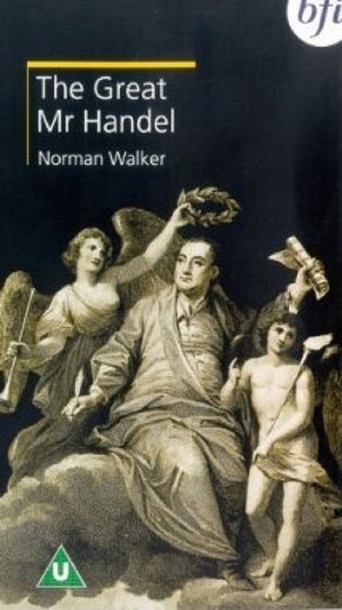martin-fennell
A biopic that is different than usual/ How much of it is true, and how much invented by screenwriters, I have no idea. What makes it different is the absence of romance. Also when Handel turns to writing the messiah, he actually does write, and for more than a few minutes. The only real criticism, i have is that the religious visions could have been left out. In the title role, Wilfred Lawson is excellent
boblipton
For the first Technicolor feature produced by his organization, Rank went to his WHV production arm; this was the group that did movies on sacred subjects. The subject was George Frideric Handel and how he came to write his MESSIAH.The best part of this movie is the cinematography. Two men are credited: Claude Friese-Greene, who had more experience with color camera work than anyone else in Britain -- he and his father had developed Biocolor, which was never commercially successful. This turned out to be his last completed movie. His co-cinematographer was Jack Cardiff, whose painterly vision is very apparent here. The whole thing looks like a series of paintings from Handel's era. The music, being Handel's, is beautiful. The story, of how Handel (played by Wilfred Lawson), grown unfashionable, continues on, supported only by Elizabeth Allan as Mrs. Cibber and his faithful servant, played by Hay Petrie, is adequate to the task.Were these the only considerations, this would be fine movie. Unfortunately, while Mr. Lawson's performance is great (he plays Handel as someone who has not quite grown used to speaking English; his language is that of the orchestra) and Hay Petrie speaks his lines as he always does, which is why he was such a successful character actor, the other performers talk as if they are amateurs reading their parts off the script for the first time. Given the long and successful careers of many of these performers, this is an annoying puzzlement.A talking movie is more than pictures and score. The dialogue is the glue that holds the pieces together and tells the story. The failure here leaves the movie-goer looking at a beautiful and sometimes very interesting effort (when it is just Lawson and Petrie, or when Handel's music is being performed -- although none of the actors are very good at faking their playing of instruments -- but ridiculously dull at other moments. The result is a movie that is definitely worth watching, but not more than once.
malcolmgsw
This is a dreadfully dull biopic in an era of stodgy biographical stories.Probably made for propaganda purposes.The best aspect of this film.The sort of colour that seemingly could only be achieved by early three strip Technicolor.Jack Cardiff receives a credit as one of the cameramen.Wilfred Lawson plays the title role with a truly dodgy German accent.This film really represented the pinnacle of his screen career,partly due to his alcoholism.By the fifties he had slipped well down the cast and was playing character parts with that rich fruity voice.Sadly this is a very dull film whose narration is partly explained by lengthy interrupted.In truth this film is only likely to find favour with fans of his music.
John Oliver
Handel's Messiah has been a favorite of millions of people for centuries. It has been sung and performed all over the globe, especially during the Christmas and Easter seasons.This movie tells the story behind the writing of that masterpiece. The first two thirds sets the context of the man and his struggles. Then most of last third is spent showing what it may have been like to compose that immortal work of art.At the end there was a short segment of the grand performance of the Hallelujah Chorus.Out of personal hardships and illness came this amazing work that has endured. A few other people played a huge role in bringing this to past.There is an indication of how his personal fellowship with God influenced him during this creative process.Plus the period costumes and antique like sets give a beautiful visual history lesson.


